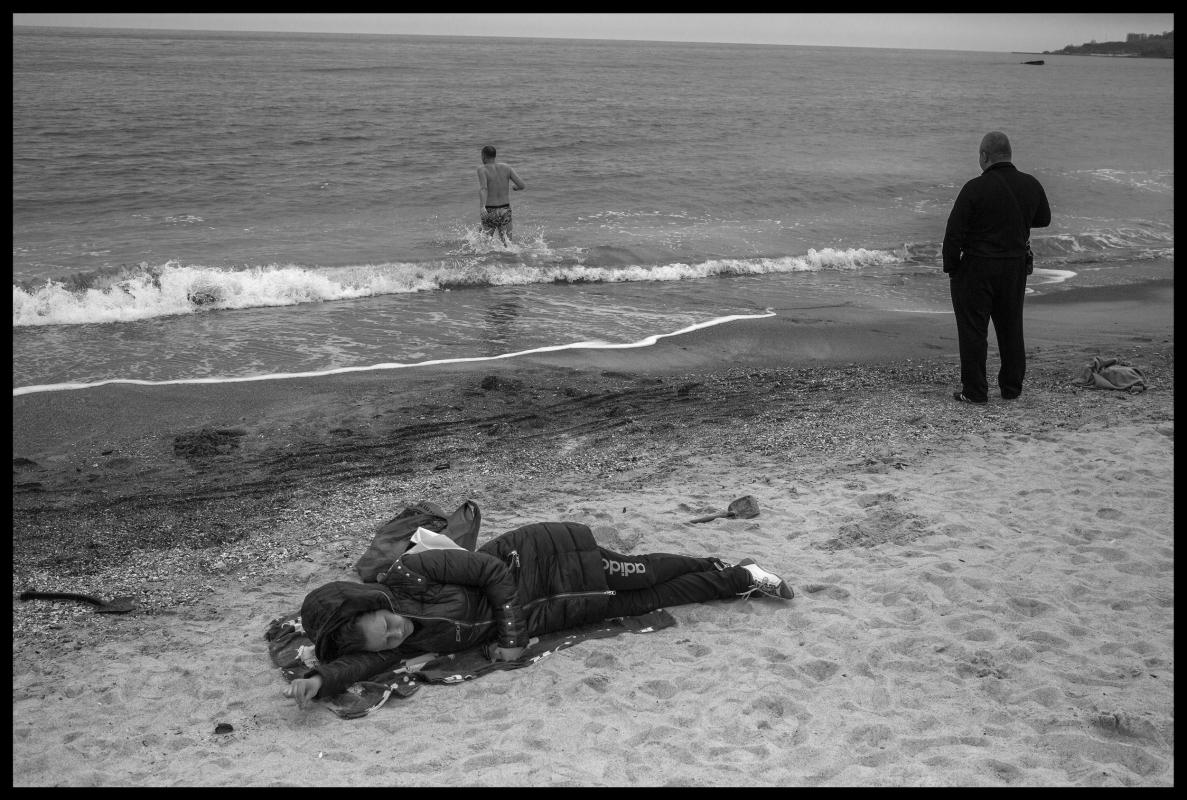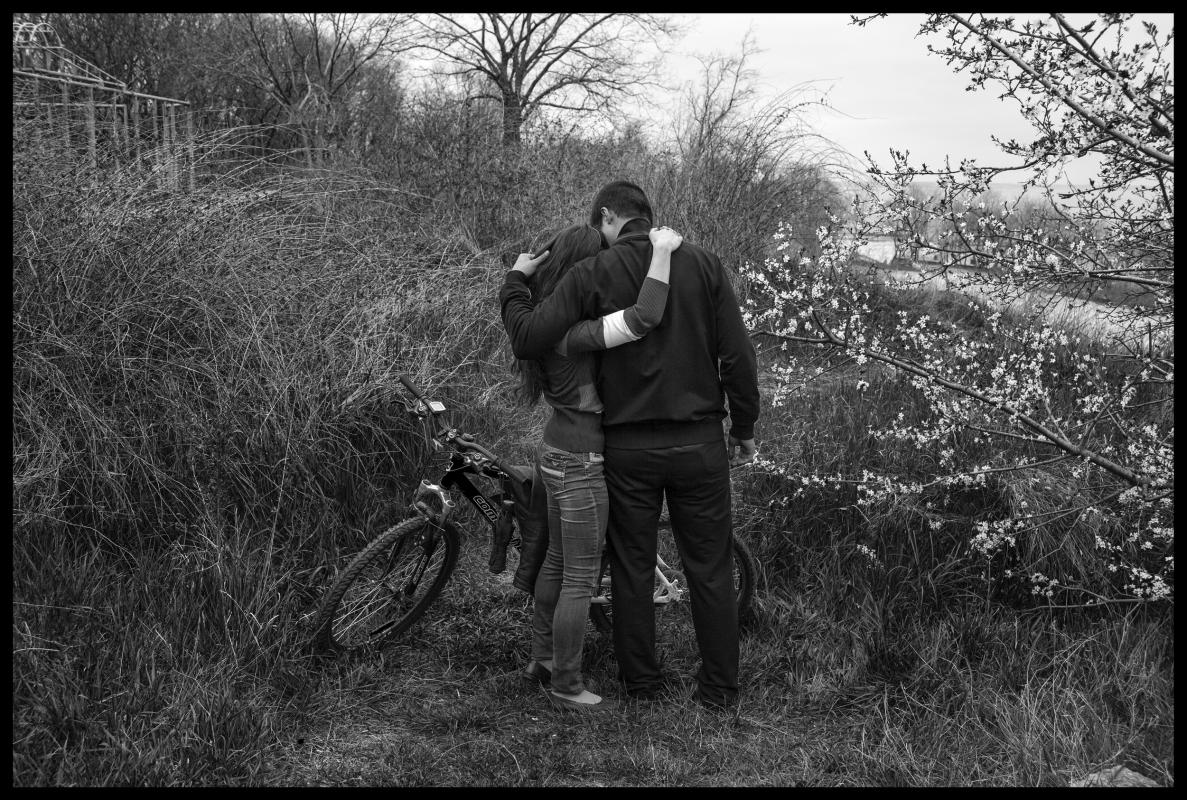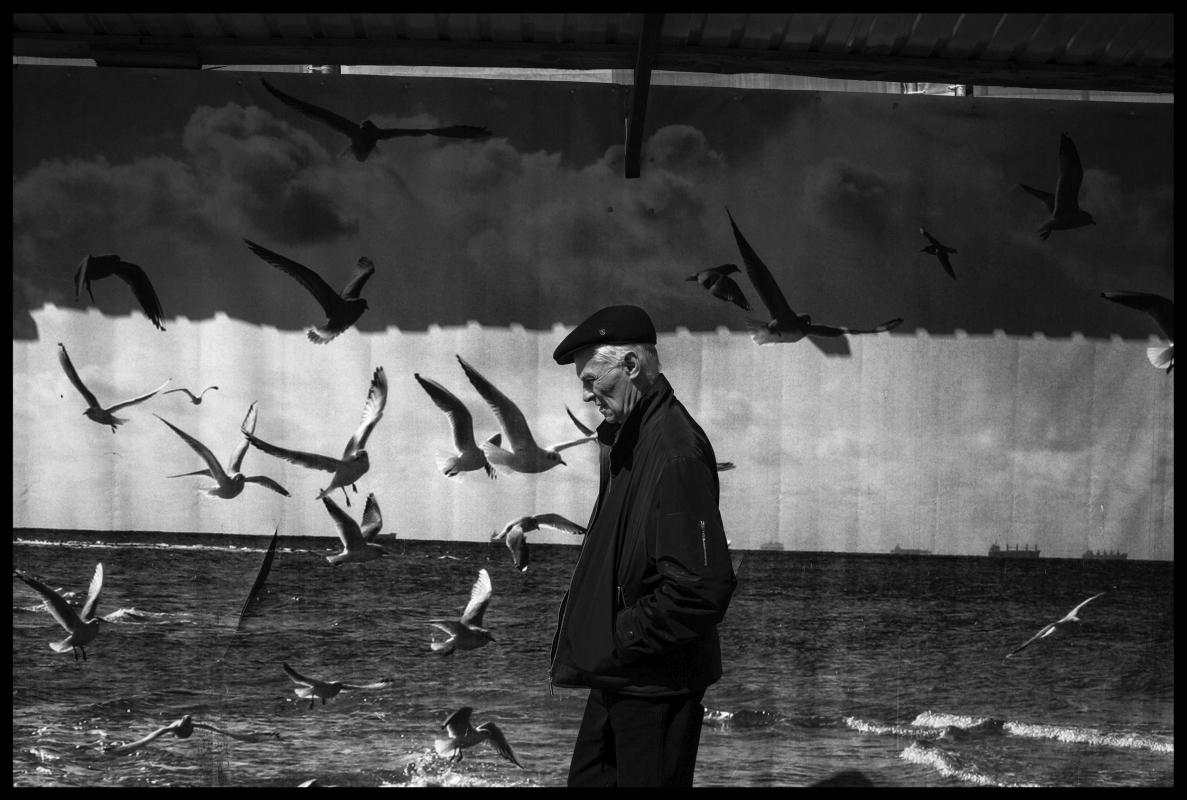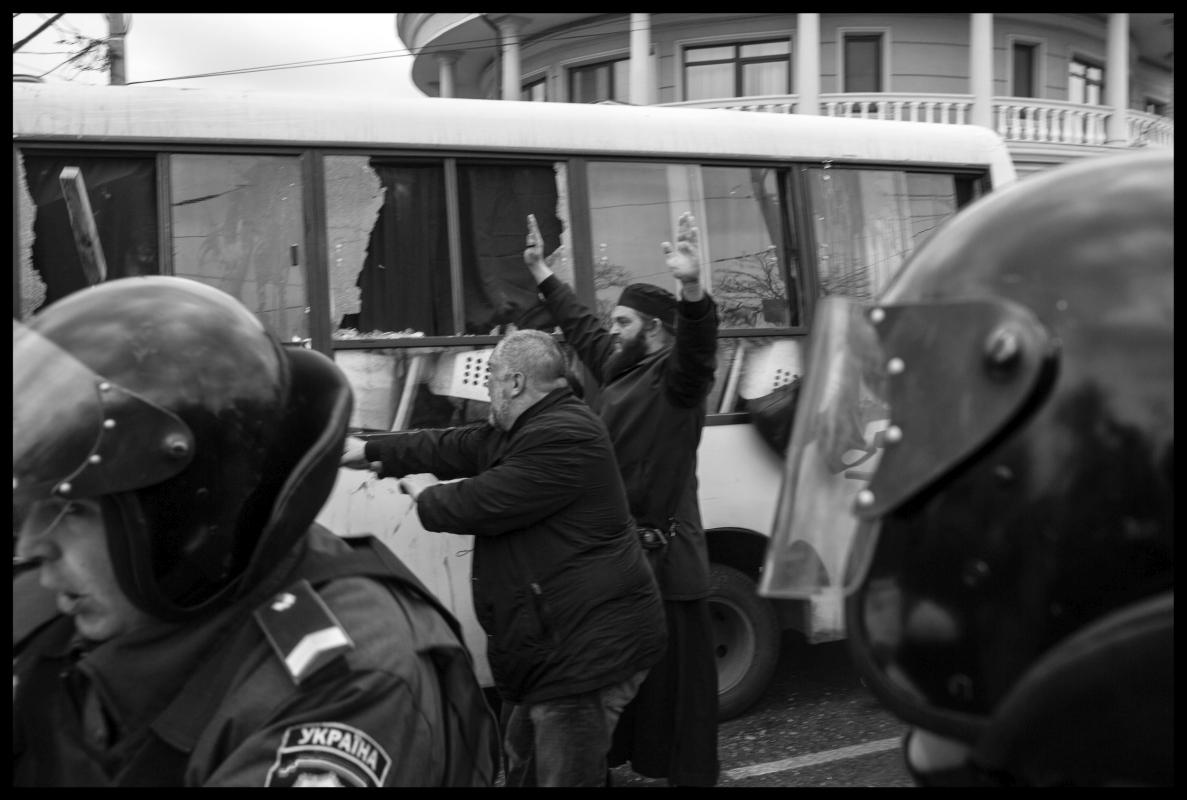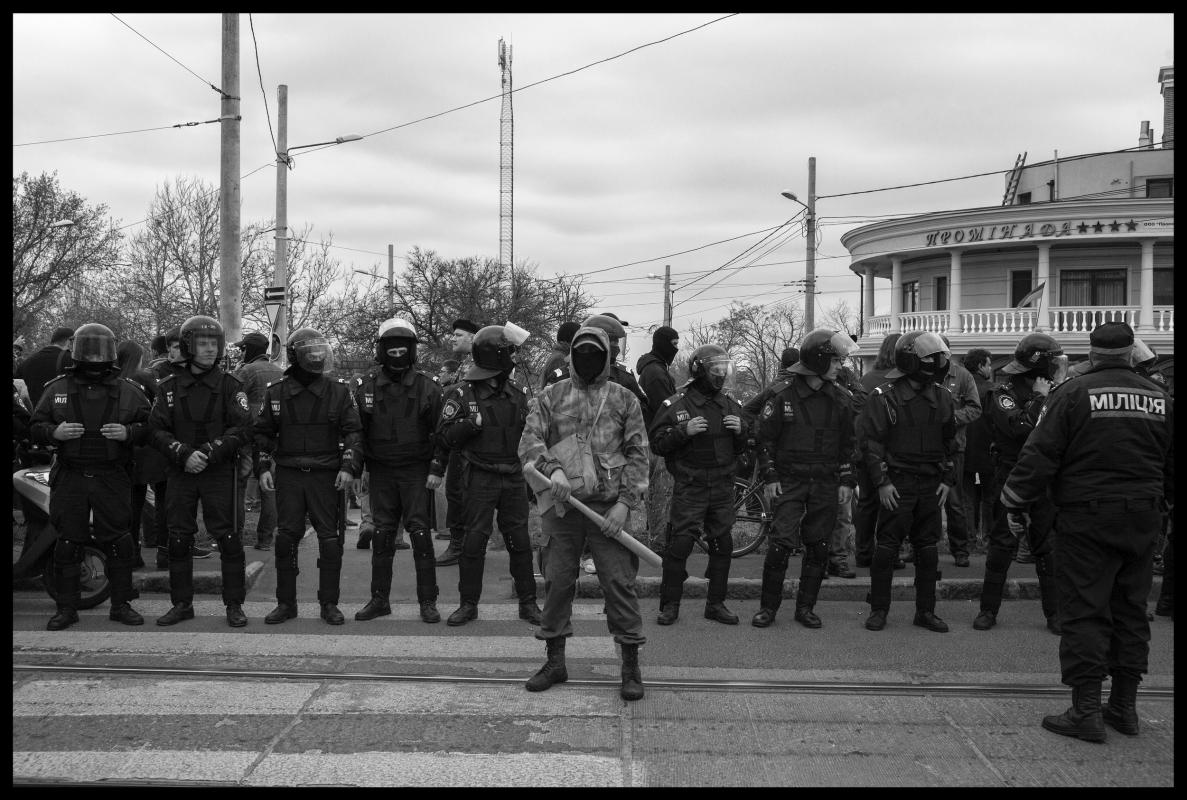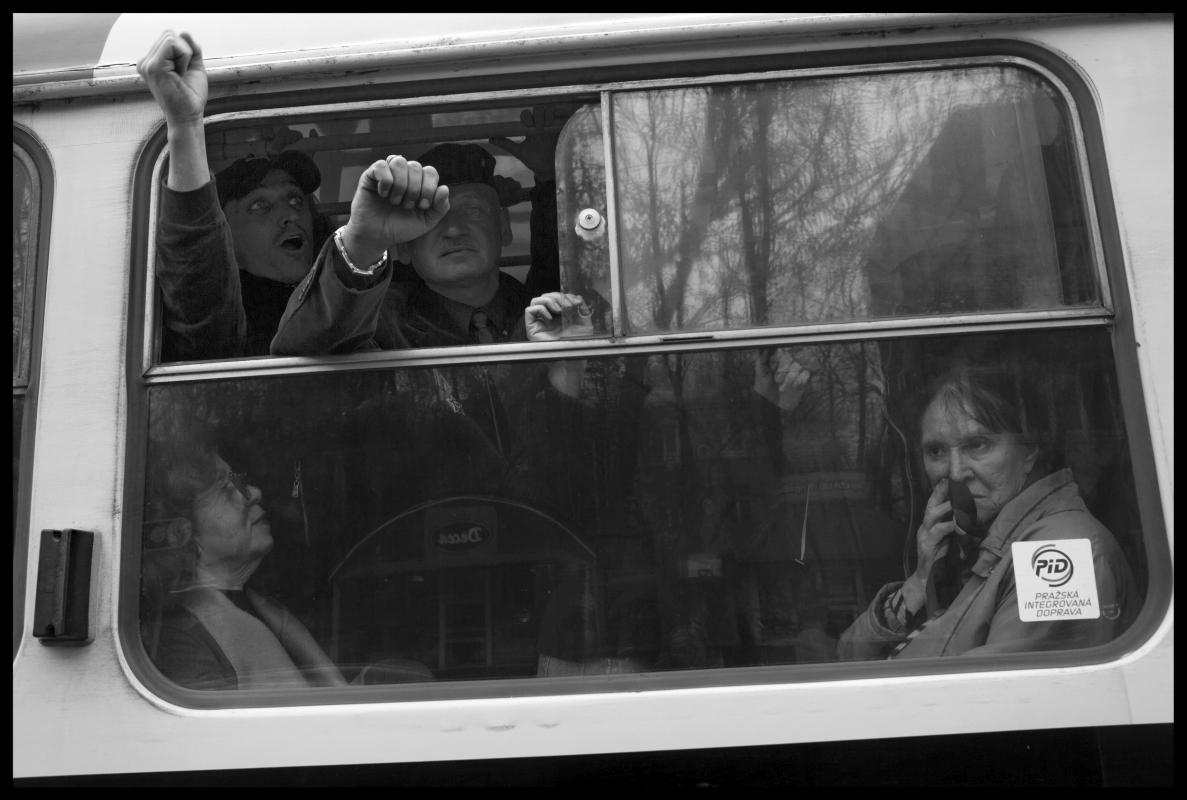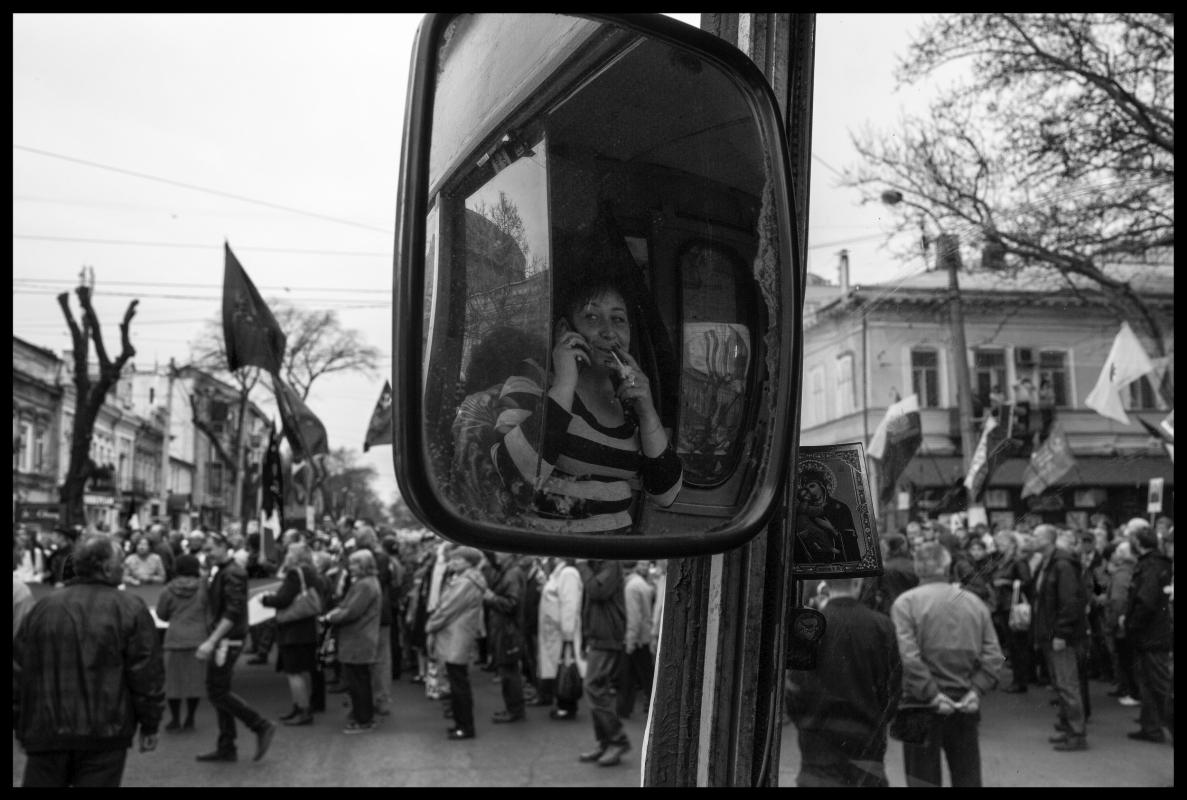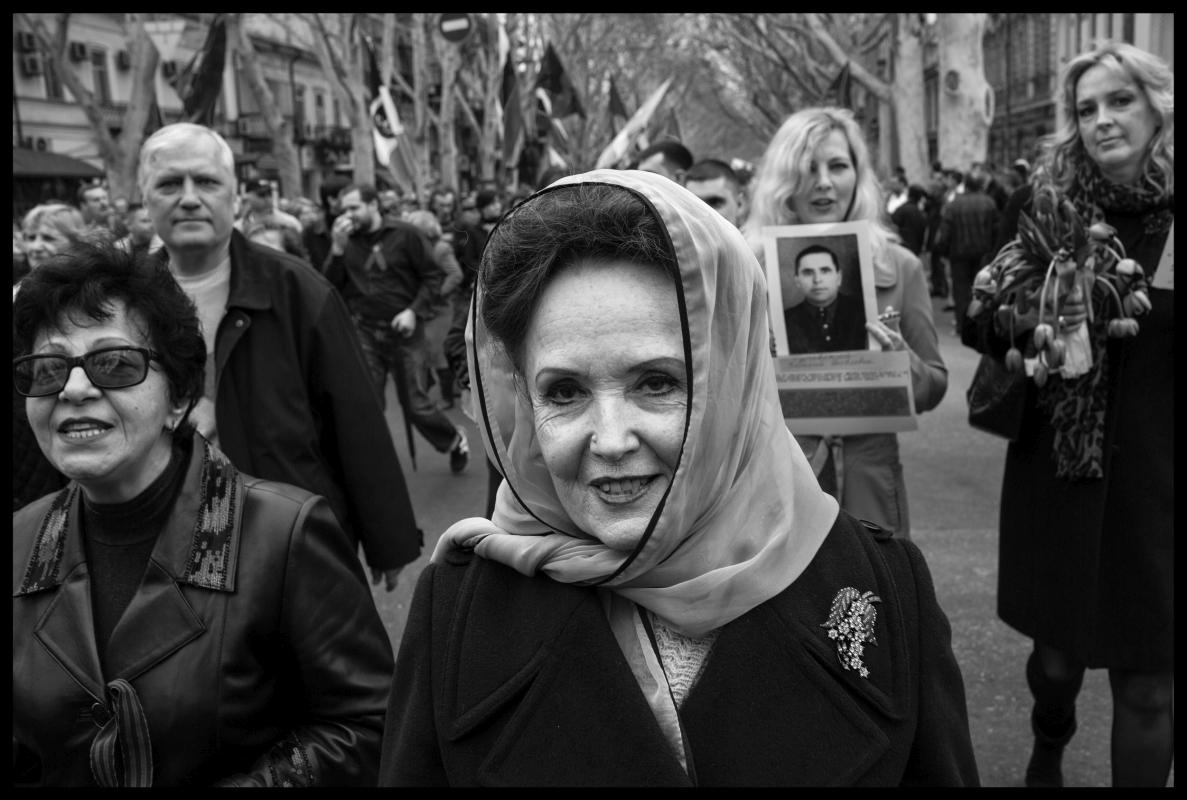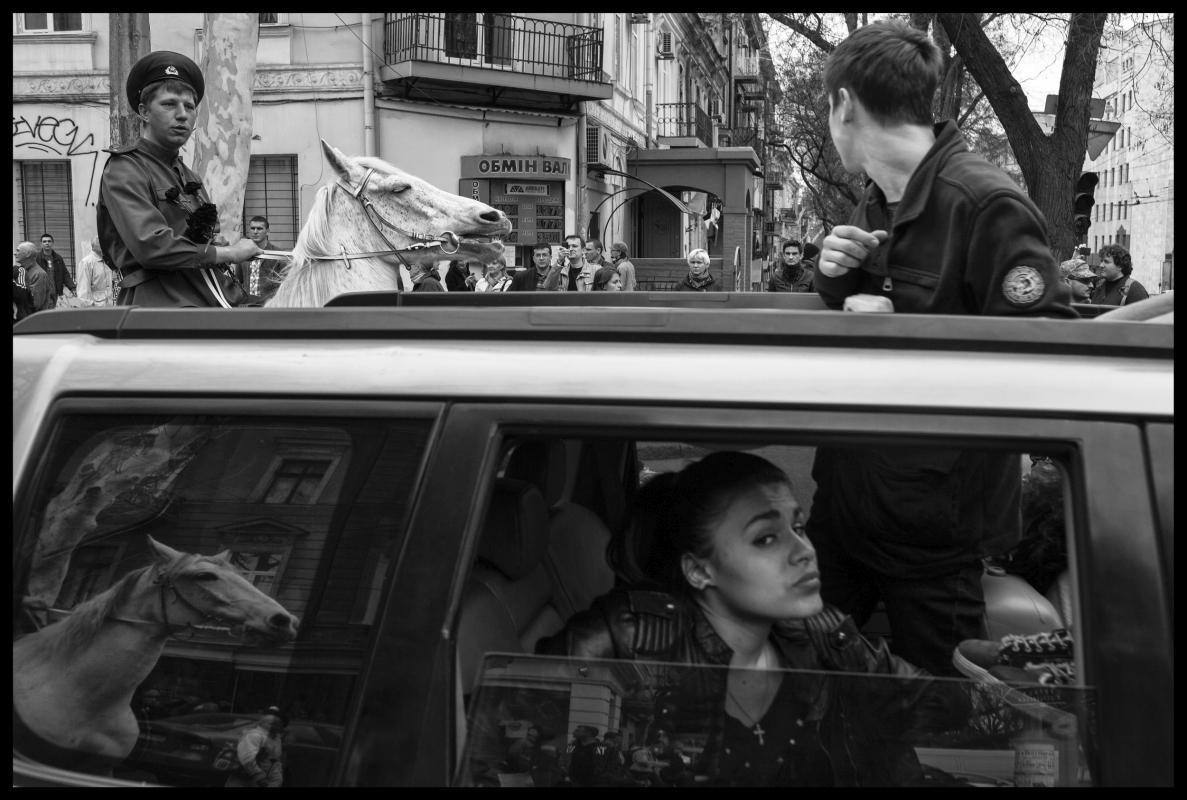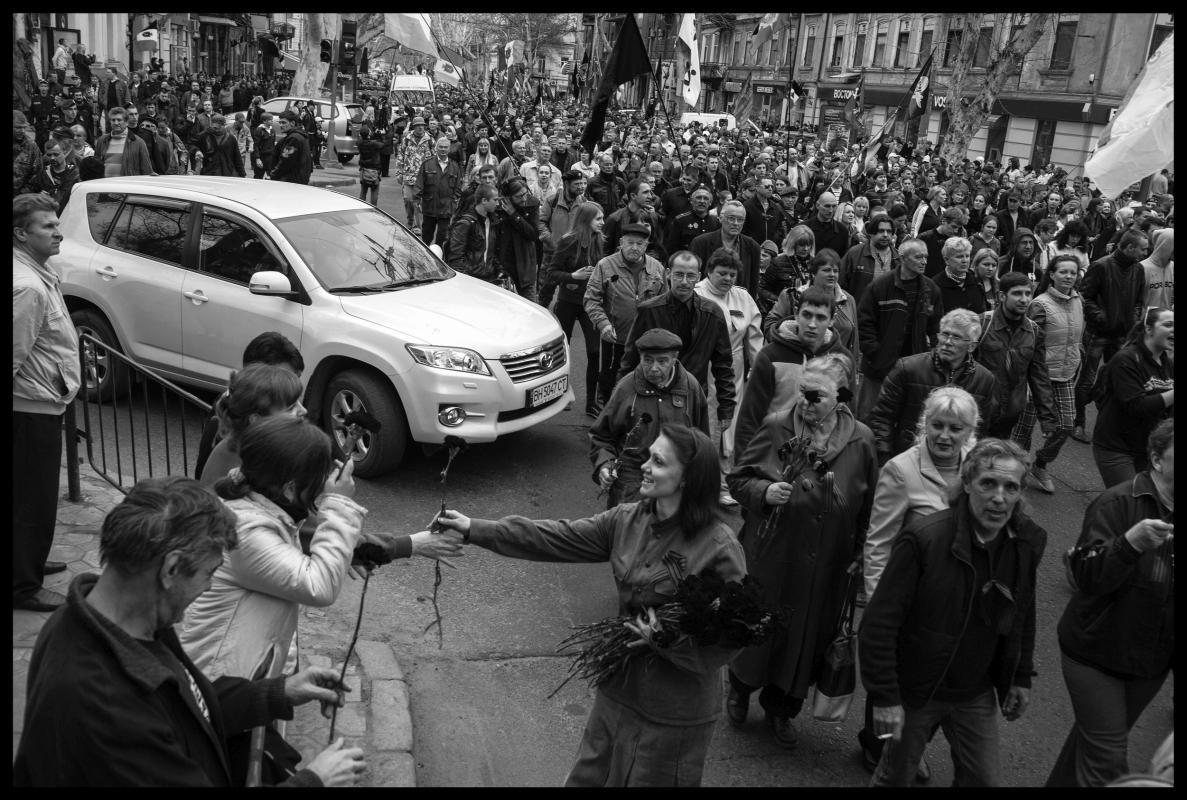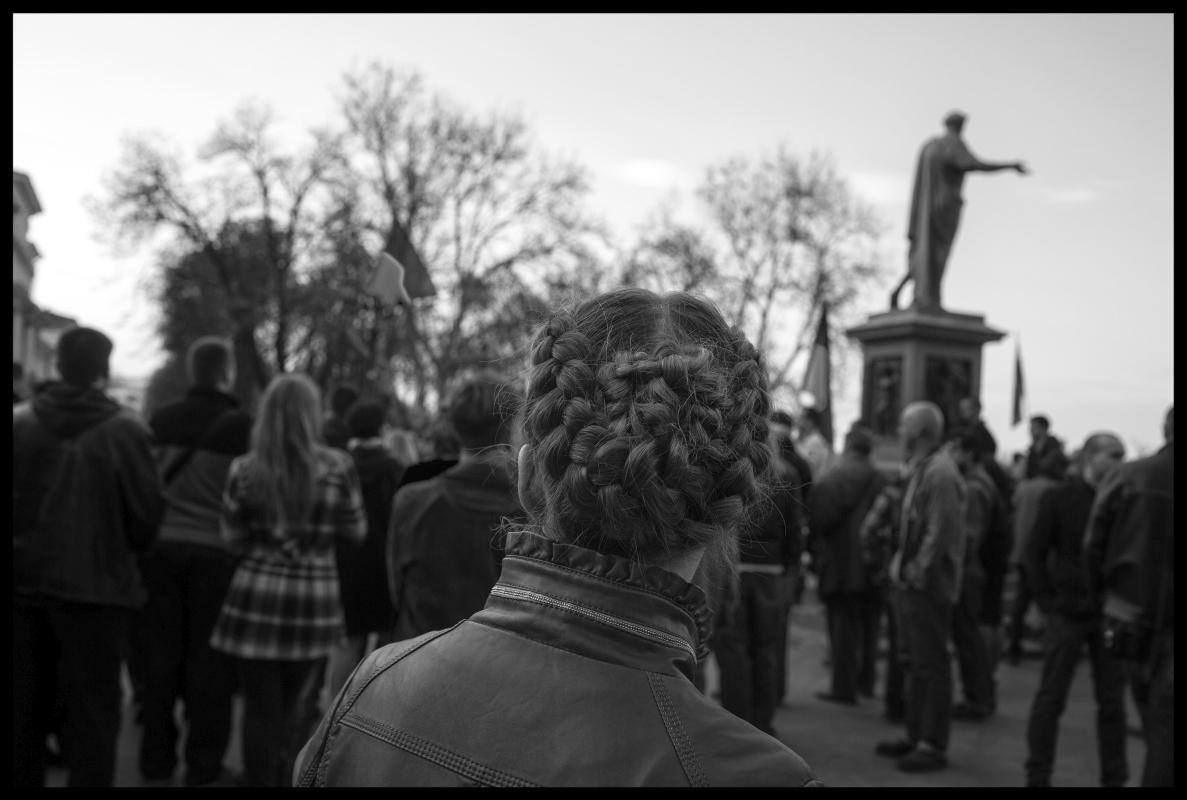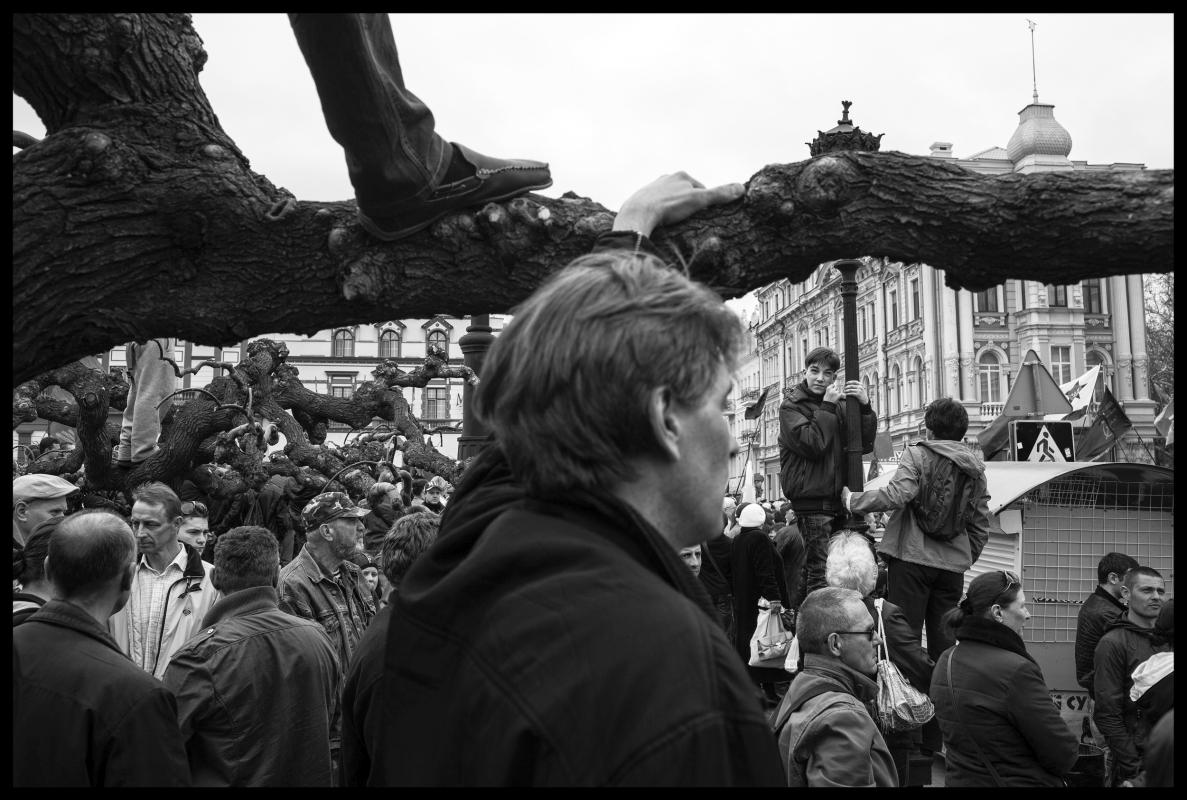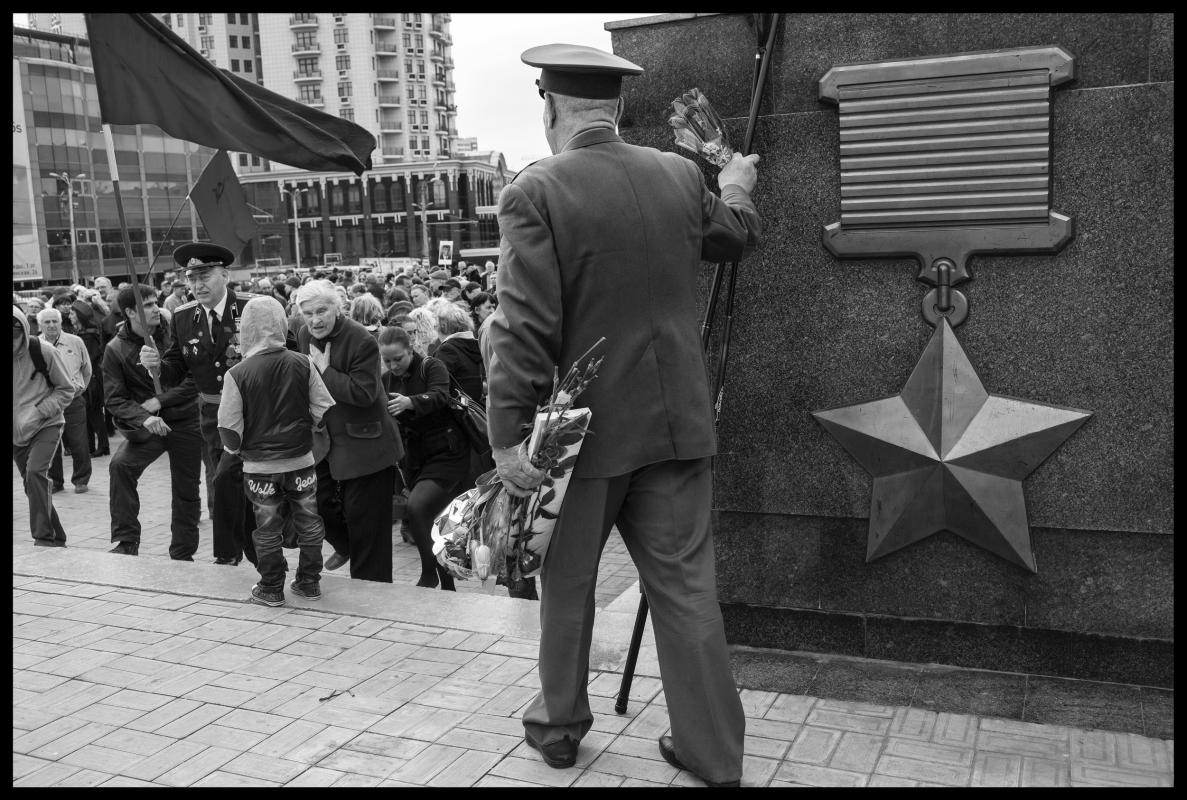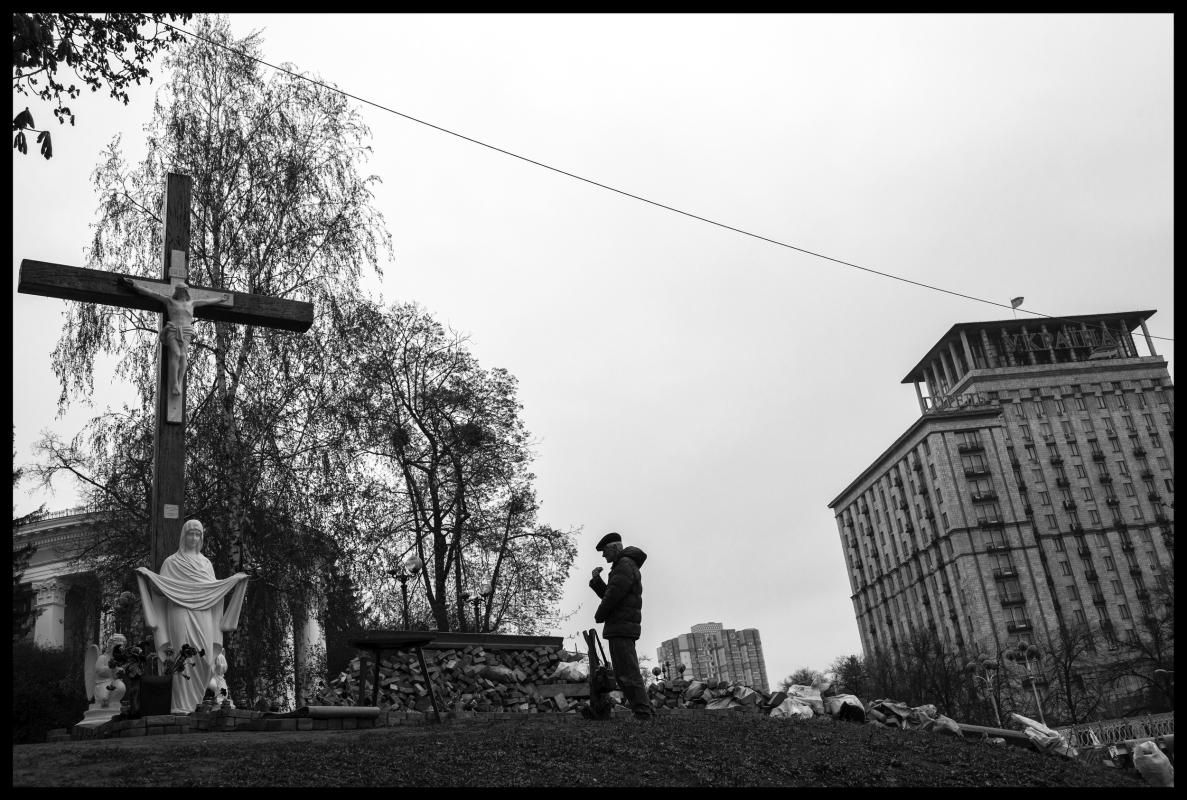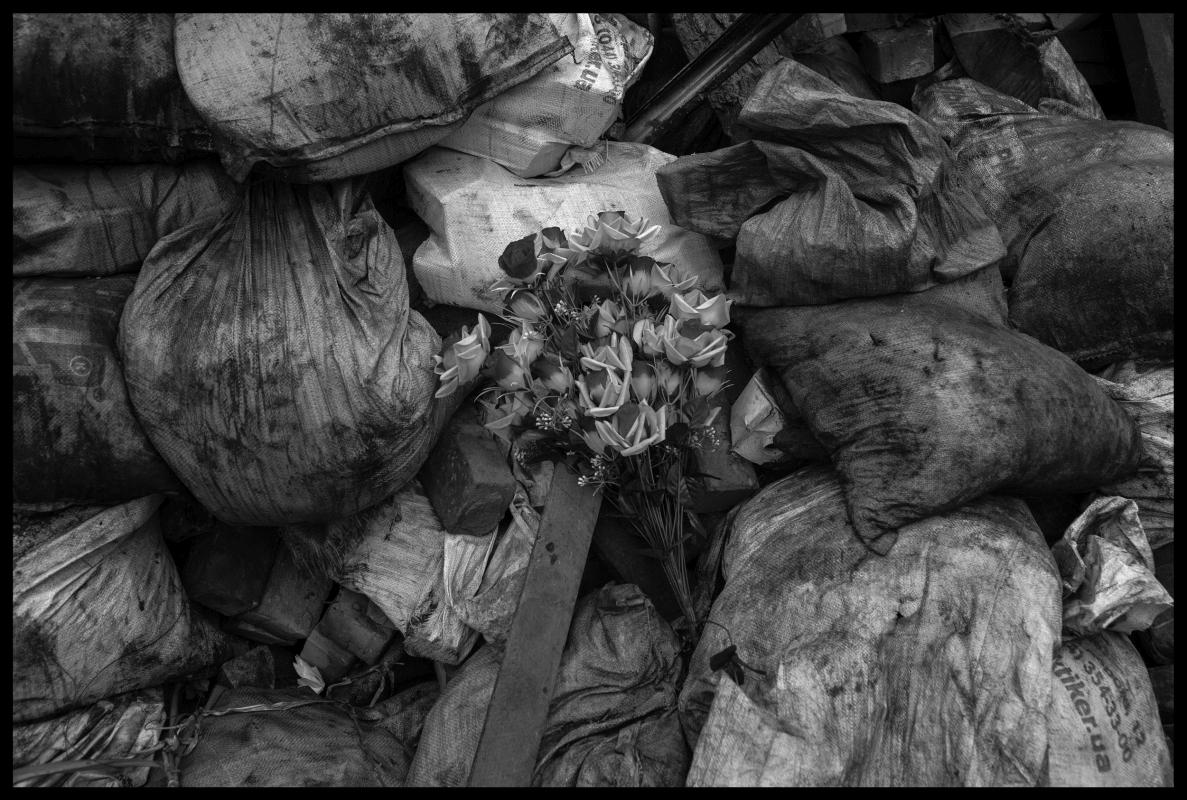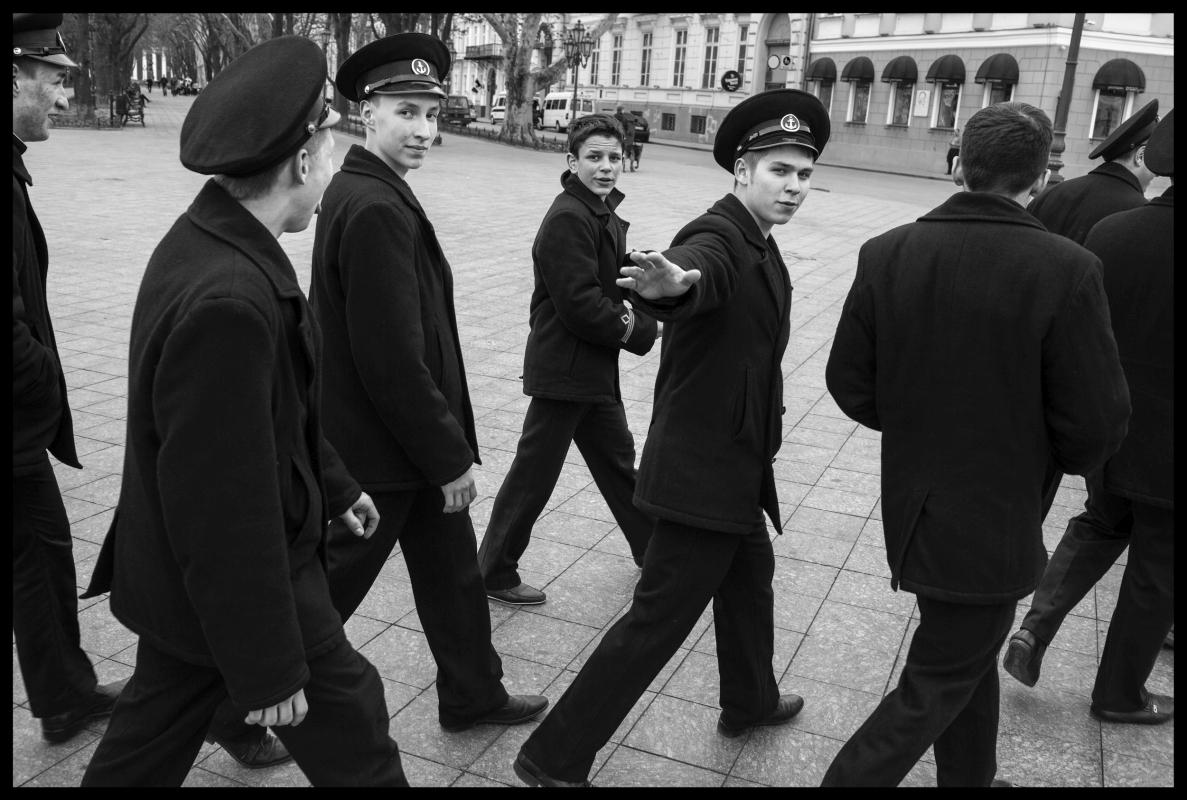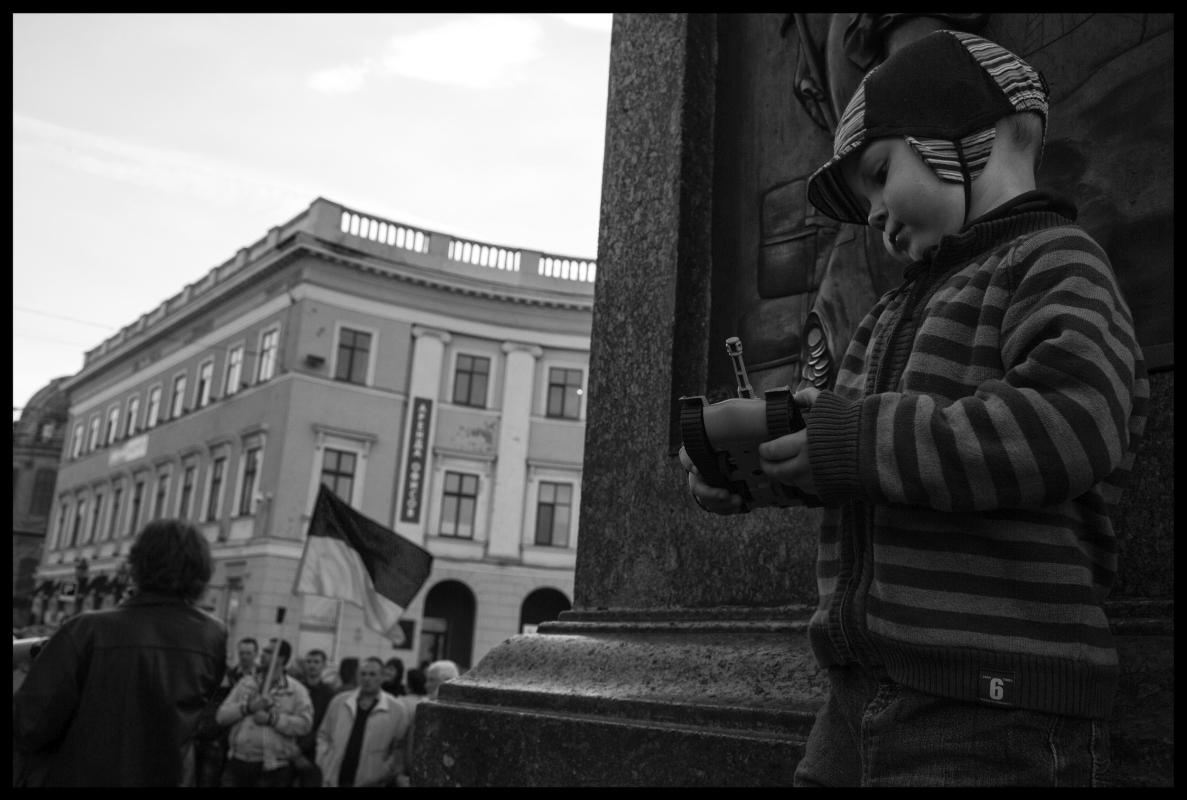
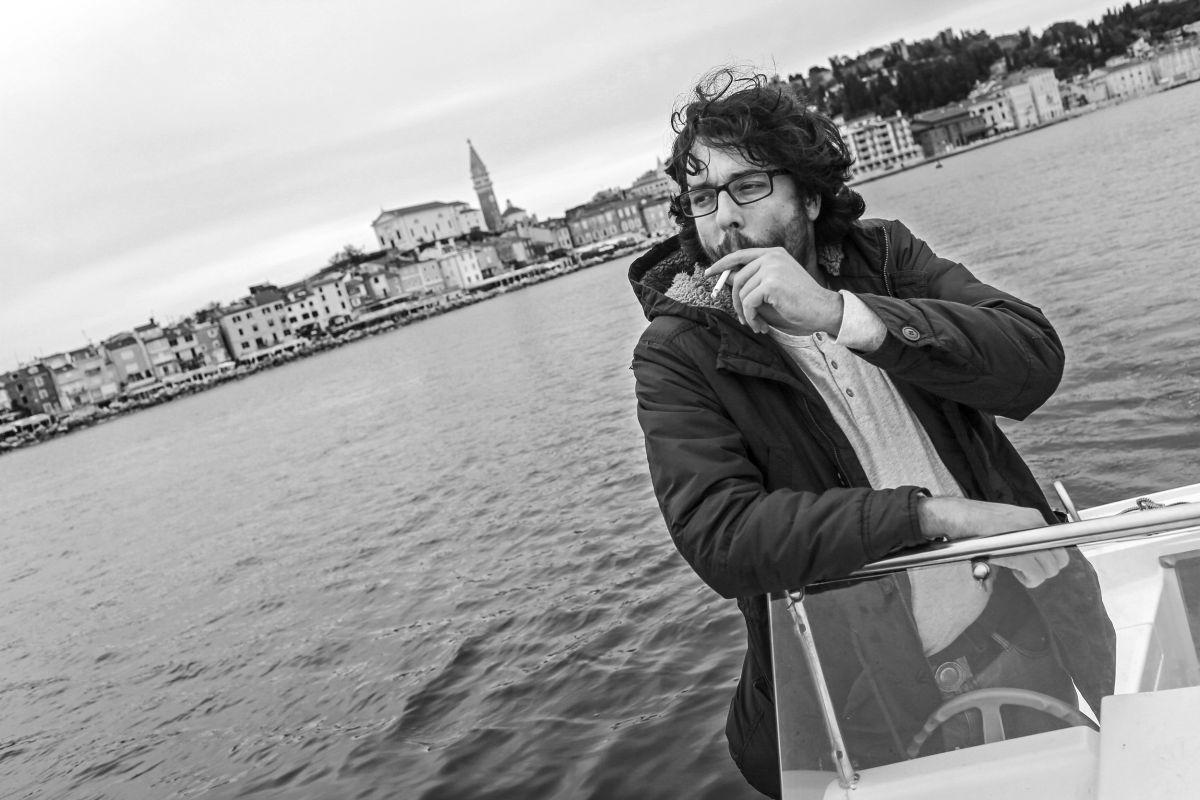
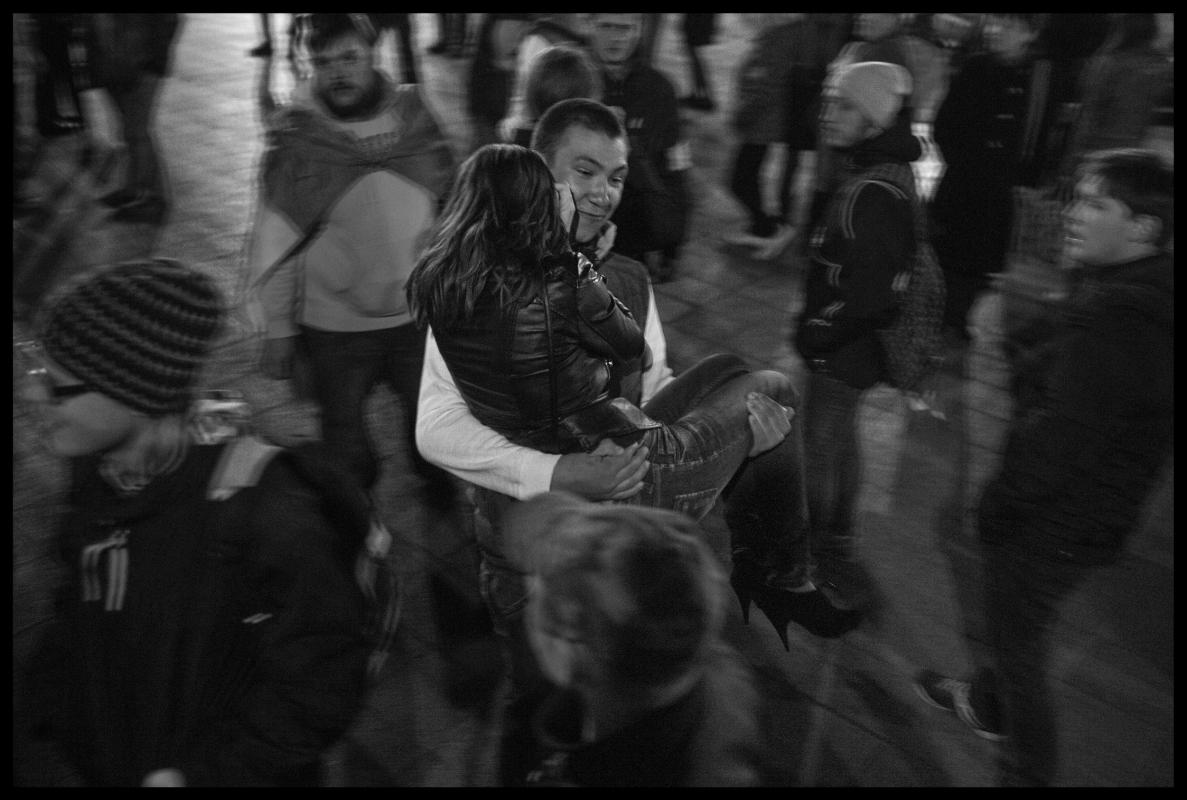
He was there on holiday. In the company of his journalist colleague Ervin Hladnik Milharčič he travelled more than 4,000 kilometres in eight days. "We departed in a military green Land Rover Defender. It attracted a lot of attention, especially when crossing the borders. They kept asking: "Military?" And we kept answering: "No, no, hunting!"(laughter)
Jaka Gasar (34) has been the photographer for Dnevnik journal for several years. Last year he got the award for outstanding achievements in journalistic photography by the DNS (Slovenian Journalistic Society). He captured the image of an elderly man saving his pet in the flood which struck Slovenia. "It is a pure, dynamic shot, expressing the love and the power of man against the rampant nature," was the explanation for their choice of the award winner (see photo five on the right, 'The man and the cat').
It has always been pleasant to talk with Jaka. Besides his photographs he has at least two more characteristic traits: his laughter, and his incredible story-telling capabilities. Those who know him well know that there are certain events which are meant to happen only to him: let's mention an example – to avoid by a hair a beating by masked and armed rebels in Odessa in the Eastern Ukraine. Yet even more than from his stories you can learn from his photos. Bitter, yet vital, and if only possible in his favourite black-and-white technique You can see the images of Ukraine, such as we lately don't see often in media, at his exhibition in the 'Kljub vsemu' Gallery (Tovarna Rog, Ljubljana). This time, with Jaka, we spoke on first name basis!
_______________________________________
Is it completely normal for a photographer to go on holiday in a country one half of which is fighting a civil war?
I don't associate a vacation with lazing under a palm tree. That's only resting. One should take good use of a vacation. And presently there is no better place for a vacation for a reporter than Ukraine!
Is the fact that you were equally welcome by the Ukrainians and the Russians alike one of the reasons?
It was very interesting working as a photo reporter from Slovenia, as both sides liked me! The Ukrainians kept asking how it was in the European Union, while the Russian considered me as a kind of a relative: "O, Yugoslavia … you are our brother!"
And what was your answer to the Ukrainians about the EU?
At first I tried to explaine to them that it was not so good, and that they should avoid the EU. But then I realized it was pointless, so I refrained from commenting. I just said: "Yes, yes, the EU is great!" (laughter).
You started your travel in Odessa
We drove through Hungary, Romania, Moldova into Odessa, Kiev and Lvov.
In this way you saw both pro-European Kiev and pro-Russian Odessa. What was the atmosphere among the inhabitants?
Although the most of the inhabitants of Odessa are Russian, I got the impression that not all of them wish to live in Russia. It was interesting – the very day we came to Odessa we read in an American newspaper that the Russians are in the middle of a military invasion of Ukraine, advancing through Moldova. We had just arrived from Moldova, and saw no sign of that whatsoever! The article was published in a serious American newspaper. So much about the accuracy of information we are given.
Fire, violence, puddles of blood, tear-stained female faces, angry gazes, smoke, destruction an be seen on the photographs we have been receiving from Ukraine for the last couple of months. But what kind of life hides behind? Is there an alternative reality?
People actually love each other very much. In parks, meadows, bushes you can see couples kissing. The boys are really gallant, some even carry their girlfriends in their arms (see the third photo on the right). It was my impression that the life in Odessa goes on undisturbed. If you don't pass the Potemkin Steps at 6 p.m., where every night the peaceful meetings are being organized by Ukrainians, you wouldn't know about them. And if you bypass the square where the Union Building is located, where the Russians have their camp, you have no idea anything is going there either. People live their lives, lie on the beach or bathe…
Had you already had ideas about the shots you would make before leaving for Ukraine, or any expectations?
I wouldn't say you are looking for an exact shot, but most certainly you have some aspirations. Therefore you have to keep your eyes open and look around you. I have noticed that the photographers working for world news agencies lately often use wide-angle lens. Besides deforming the photo, such lenses include too much information which the viewer doesn't need. I use only classical lenses, used by reportage documentary photographers for the last hundred years- 35 millimetre and 50 millimetre lenses.
What is the attitude towards photographers? Do they like to be photographed, or do they first check on which side are you?
Let me put it this way: once we reached Odessa, we parked some 100 metres from Potemkin Steps, not expecting any troubles, and waited for the lady with the keys to our apartment. As the drive through Moldova was rather long, I wanted to stretch my legs and smoke a cigarette. Just when I wanted to light the cigarette, I noticed a group of masked and armed men running towards me. They were still quite far away from me, so I looked back to see if there was someone there – but there was nobody. I didn't know how to react – either to go back to the car, which might have resulted in them beating both me and my colleague, and destroying the car, or to stay put and in a way sacrifice myself…. When the threatening group approached, a car stopped in front of us and a completely ordinary looking guy stepped out, dressed in shirt and pants, a bit older than 40. The mob chose to beat him, in front of our eyes. I went back to the car, got in and thought to myself: "So that was a welcome to Odessa."
And so you will never know who the original target was.
It will remain a mystery (laughter). When we then made the turn towards Potemkin Steps, where the Ukrainians held their peaceful protest, we learned that those were Russians who just came to provoke a little. Some beating, the police took ten of them away, and that was that. I needed a large part of the next day to realize their attitude towards a camera. And when I did, I found myself in heaven (laughter).
Why?
If you photograph people at the demonstration in Ljubljana, they either hide from the camera, or start laughing, or drive you away. There is no way to make a good photo. In Odessa you can get as close as you want; even if you make a photo ten centimetres from their faces, they don't even notice it. That is an orgasmic experience for a photographer! The most important for us is to remain invisible; that's the only way to make a good photo, and to catch the right moment! (laughter)
Katja Štok, translated by G. K.
Some impressions from Odessa and Kiev, caught by the photo reporter Jaka Gasar this April:




















































